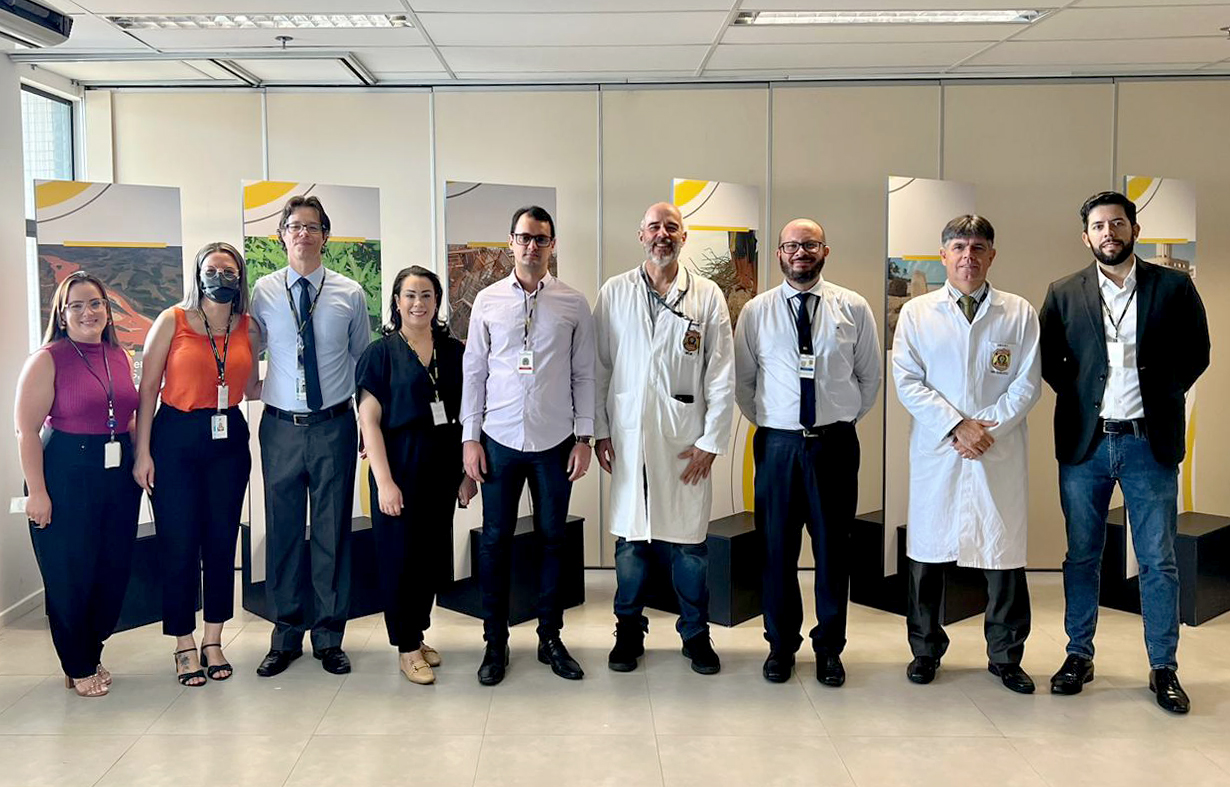
Brasília, 27 February 2023 – Supported by UNODC’s Center of Excellence for Drug Supply Reduction (CdE), the Ministry of Justice and Public Safety (MJSP) in articulation with the Federal Police (PF), received on Monday (27) the first samples of cocaine from the states of Pernambuco and Paraná to start the analysis process to test for cocaine purity. The delivery of samples is a crucial step in an initiative that aims to make it possible to obtain data on the levels of adulteration of street cocaine, contributing to strengthened research related to drug pricing in Brazil.
The action involves collaboration between the Minerva project, which promotes training for criminal experts, and the CdE, which was created in 2021 through a partnership between the National Secretariat for Drug Policy and Asset Management of the Ministry of Justice and Public Security (SENAD/MJSP), the United Nations Development Programme (UNDP) and the United Nations Office on Drugs and Crime (UNODC).
Both states also sent criminal experts who will work under the guidance of the team from the Chemical Profile of Cocaine Project (PeQui) of the Federal Police. The activities will take place in the laboratory of the National Institute of Criminalistics of the Federal Police (INC/PF) in Brasilia, which received 50 samples of cocaine hydrochloride ("powder") and 50 samples of freebase cocaine ("crack") from the capital of each state. For two weeks, state experts and INC researchers will work on the steps for sample preparation, analysis, and elaboration of a report with the results obtained. After Paraná and Pernambuco, the INC will receive experts and samples from the states of São Paulo and Mato Grosso. The idea is, with this initiative, also to disseminate among Brazilian states the importance of collecting purity data to produce inputs that subsidize drug policies in the country.
Drug Market in Brazil - The study "Dynamics of the Illicit Drug Market in Brazil," elaborated by the CdE, brings an overview of the drug market in the country based on variables such as the price of marijuana and cocaine, in a comparison between the states of São Paulo, Paraná, Pernambuco and Mato Grosso.
The initiative is the result of an unprecedented project to monitor this market, developed through a partnership between the CdE and the Integrated Illicit Crop Monitoring System of the United Nations Regional Office on Drugs and Crime for the Andean and Southern Cone Countries (Simci – UNODC Colombia) and in collaboration with Brazilian public security institutions.